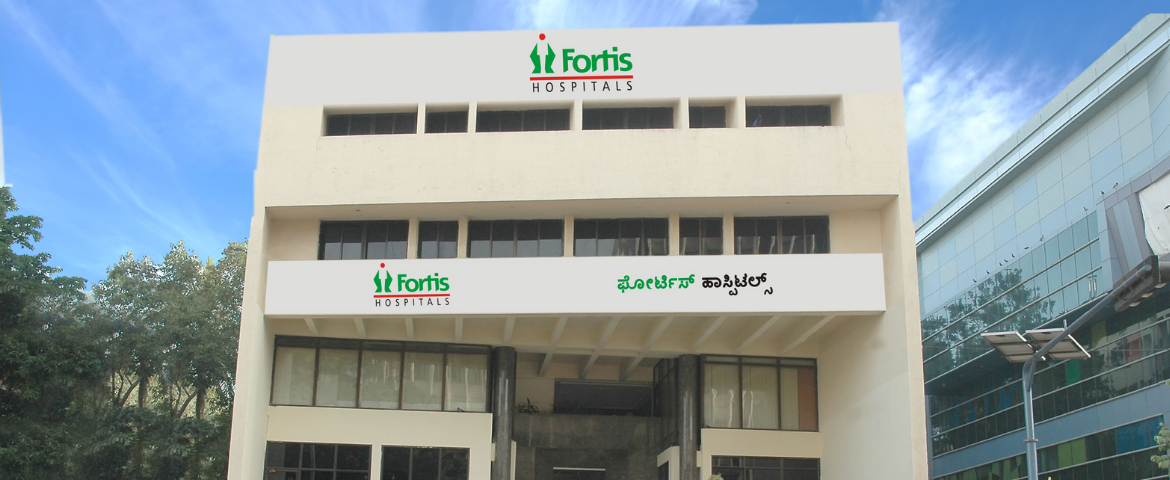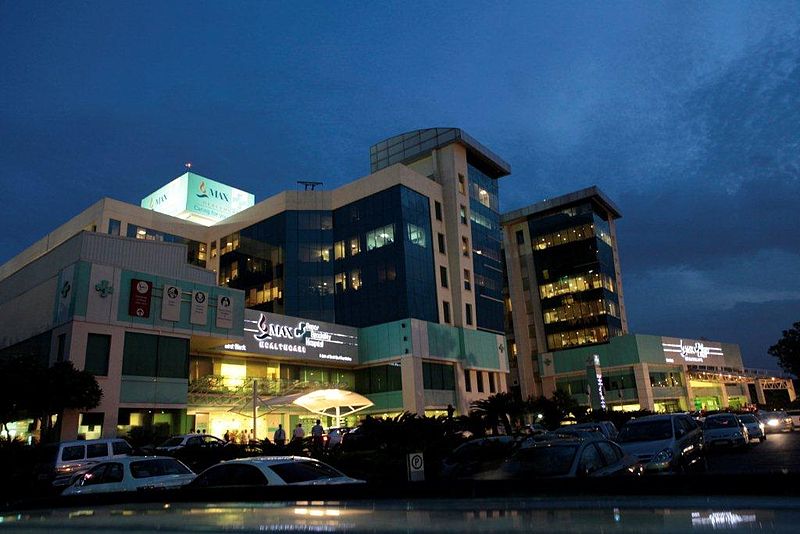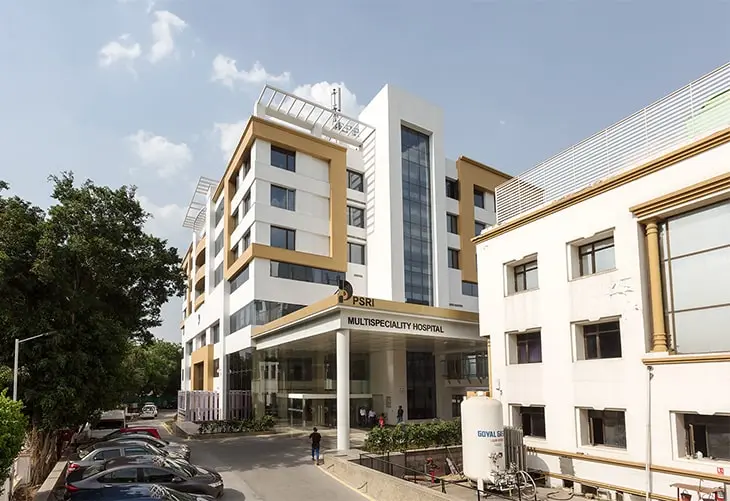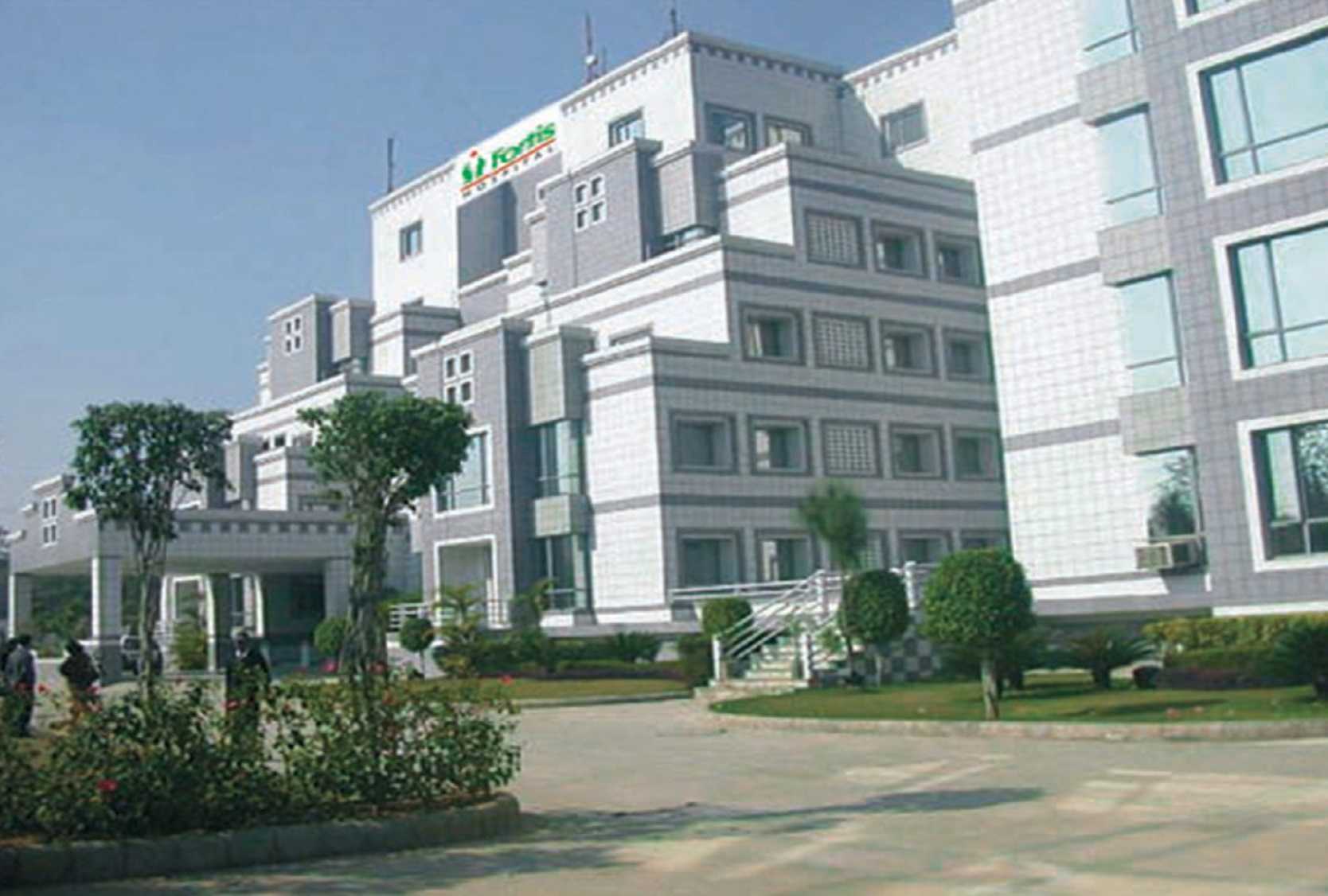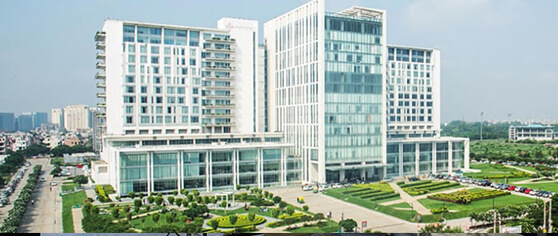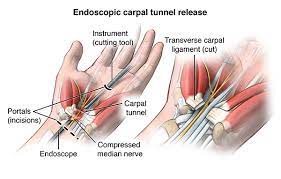Carpal Tunnel Release cost in India
The cost of Carpal tunnel release in
India ranges from USD 3000 to USD 7000
Carpal Tunnel Release:
Carpal tunnel release is a procedure that is intended to treat and maybe mend carpal tunnel syndrome, which is a painful ailment. Carpal tunnel syndrome was once thought to be caused by an overuse injury or a repeated action made by the wrist or hand, most commonly at work. They now know that it's most likely a hereditary propensity (something that runs in families) — some people's carpal tunnels are just narrower than others'. Injury, such as a sprain or fracture, or repetitive use of a vibrating instrument, can potentially induce carpal tunnel syndrome. Pregnancy, diabetes, thyroid problems, and rheumatoid arthritis have all been associated to it.
Carpal Tunnel Release:
Carpal tunnel release is a procedure that is intended to treat and maybe mend carpal tunnel syndrome, which is a painful ailment. Carpal tunnel syndrome was once thought to be caused by an overuse injury or a repeated action made by the wrist or hand, most commonly at work. They now know that it's most likely a hereditary propensity (something that runs in families) — some people's carpal tunnels are just narrower than others'. Injury, such as a sprain or fracture, or repetitive use of a vibrating instrument, can potentially induce carpal tunnel syndrome. Pregnancy, diabetes, thyroid problems, and rheumatoid arthritis have all been associated to it.
Disease Overview:
Carpal tunnel syndrome
The pressure on the median nerve causes carpal tunnel syndrome. On the palm side of the hand, the carpal tunnel is a tiny channel enclosed by bones and ligaments. Numbness, tingling, and weakness in the hand and arm can occur when the median nerve is crushed.
Carpal tunnel syndrome is caused by the architecture of the wrist, health issues, and maybe repeated hand motions.
Tingling and numbness are frequently relieved with proper therapy, and wrist and hand function is usually restored.
Disease Signs and Symptoms:
Symptoms of carpal tunnel syndrome generally appear gradually and include:
- Tingling or numbness are common symptoms. Tingling and numbness in the fingers and hand are common symptoms. Thumb, index, middle, and ring fingers are usually afflicted, but not the little finger. These fingertips may feel like they're getting an electric shock.
- The feeling might spread up the arm from the wrist. These symptoms can happen when you're driving, talking on the phone, or reading the newspaper, or they can wake you up.
- Many individuals try to ease their symptoms by "shaking out" their hands. Over time, the numb sensation may become permanent.
- Weakness. You can lose control of your hand and drop things. This might be caused by numbness in the hand or weakness in the pinching muscles of the thumb, which are likewise regulated by the median nerve.
Disease Causes:
- The pressure on the median nerve causes carpal tunnel syndrome.
- The median nerve travels from the forearm to the hand through a tube in the wrist called the carpal tunnel. Except for the little finger, it gives feeling to the palm side of the thumb and fingers. It also sends nerve impulses to the muscles at the base of the thumb to move (motor function).
- Carpal tunnel syndrome can be caused by anything that squeezes or irritates the median nerve in the carpal tunnel area. A wrist fracture, as well as swelling and inflammation induced by rheumatoid arthritis, can constrict the carpal tunnel and irritate the nerve.
- Carpal tunnel syndrome is frequently caused by a combination of factors. It's possible that a combination of risk factors has a role in the onset of the disease.
Factors that are at risk
Carpal tunnel syndrome has been linked to a number of variables. They may raise the risk of irritation or injury to the median nerve, even if they do not cause carpal tunnel syndrome directly. These are some of them:
- Anatomical considerations The space within the carpal tunnel can be altered by a wrist fracture or dislocation, or arthritis that deforms the tiny bones of the wrist, putting pressure on the median nerve.
- Carpal tunnel syndrome is more common in people with smaller carpal tunnels.
- Sex. Carpal tunnel syndrome is more frequent in women than in males. This might be due to the fact that women's carpal tunnels are smaller than men's.
- Carpal tunnel syndrome affects women differently than it affects males. Women with carpal tunnel syndrome may have smaller carpal tunnels than women without the illness.
- Conditions that cause nerve damage. Nerve injury, especially damage to the median nerve, is more likely in several chronic conditions, such as diabetes.
- Inflammatory diseases. The lining around the tendons in the wrist can be affected by rheumatoid arthritis and other inflammatory disorders, putting pressure on the median nerve.
- Medications. Carpal tunnel syndrome has been linked in certain studies to the usage of anastrozole (Arimidex), a medicine used to treat breast cancer.
- Obesity. Obesity is linked to a higher incidence of carpal tunnel syndrome.
- The fluid in the body changes. Fluid retention can cause irritation to the median nerve by increasing pressure within the carpal tunnel. During pregnancy and menopause, this is a typical occurrence. Carpal tunnel syndrome caused by pregnancy usually improves on its own once the baby is born.
- Other medical problems. Carpal tunnel syndrome can be exacerbated by a number of factors, including menopause, thyroid issues, renal failure, and lymphedema.
- Factors at work. Working with vibrating equipment or on an assembly line that needs lengthy or repetitive wrist flexing can put undue strain on the median nerve or exacerbate existing nerve injury, especially if the activity is done in a chilly environment.
- The scientific data is mixed, and these elements haven't been proven to be direct causes of carpal tunnel syndrome.
- A number of studies have looked into the possibility of a link between computer use and carpal tunnel syndrome. According to some data, the problem may be with mouse use rather than keyboard use. However, despite the fact that excessive computer usage may produce a different type of hand pain, there isn't enough high-quality, consistent data to establish it as a risk factor for carpal tunnel syndrome.
Disease Diagnosis:
To evaluate whether you have carpal tunnel syndrome, your physician may ask you questions and perform one or more of the following tests:
- Symptoms in the past. The pattern of your symptoms will be examined by your doctor. Because the little finger isn't supplied with feeling by the median nerve, complaints in that finger might suggest anything other than carpal tunnel syndrome.
- Symptoms of carpal tunnel syndrome frequently appear while you're holding a phone or a newspaper, or when you're grasping a steering wheel. They also tend to happen at night, and you may be awakened in the middle of the night or detect numbness when you wake up in the morning.
- Examination of the body. A physical examination will be performed by your healthcare practitioner. He or she will assess the sensation in the fingers as well as the strength of the hand muscles.
- In many people, bending the wrist, tapping on the nerve, or just pushing on the nerve might cause symptoms.
- X-ray. Some doctors advise getting an X-ray of the injured wrist to rule out other possibilities like arthritis or a fracture. X-rays, on the other hand, are ineffective in diagnosing carpal tunnel syndrome.
- Ultrasound. An ultrasound of your wrist may be recommended by your doctor to acquire a clear view of the bones and nerve. This can assist in determining whether or not the nerve is crushed.
- Electromyography. The small electrical discharges generated in muscles are measured in this test. Your physician will place a thin-needle electrode into certain muscles during this test to assess electrical activity while the muscles contract and relax. This test can detect injury to the muscles controlled by the median nerve while also ruling out other possible causes.
- The study of nerve conduction. Two electrodes are taped to the skin in a version of electromyography. To check if electrical impulses in the carpal tunnel are slowed, a mild shock is administered through the median nerve. This test can be performed to determine the cause of the problem and rule out alternative possibilities.
Disease Treatment:
Carpal tunnel syndrome should be treated as soon as the symptoms appear. Simple things you can do for yourself in the early phases of the problem may be enough to solve it. Consider the following scenario:
- Take more regular rests to allow your hands to rest.
- Avoid activities that aggravate your symptoms.
- To minimise swelling, use cold packs.
Wrist splinting, medicines, and surgery are some of the other treatment possibilities. If you've only experienced mild to moderate symptoms that come and go for less than 10 months, splinting and other conservative therapies are more likely to assist. If you feel numbness in your hands, you should seek medical attention.
Nonsurgical treatment
If discovered early, nonsurgical treatments for carpal tunnel syndrome may be effective, including:
Splinting of the wrist. A splint that keeps your wrist motionless while you sleep might help reduce tingling and numbness at night. Even if you just use the splint at night, it can help you avoid symptoms throughout the day. If you're pregnant, nighttime splinting may be a viable alternative because it doesn't require the use of any drugs to be successful.
Nonsteroidal anti-inflammatory medicines (NSAIDs) are medications that are used to treat inflammation (NSAIDs).
However, there is no proof that these medications help with carpal tunnel syndrome.
Corticosteroids. To ease discomfort, your doctor may inject a corticosteroid such as cortisone into the carpal tunnel. An ultrasound may be used to guide these injections in some cases.
Corticosteroids reduce strain on the median nerve by reducing inflammation and edoema. For treating carpal tunnel syndrome, oral corticosteroids aren't as effective as corticosteroid injections.
If rheumatoid arthritis or similar inflammatory arthritis is the cause of carpal tunnel syndrome, treating the arthritis may help to alleviate symptoms. This, however, has not been proven.
If your symptoms are severe or don't respond to conventional treatments, surgery may be the best option.
The purpose of carpal tunnel surgery is to alleviate pressure on the median nerve by removing the ligament that is pushing on it.
There are two procedures that can be used to do the surgery:
Endoscopic surgery is a type of surgery that involves the use of To view within the carpal tunnel, your surgeon uses an endoscope, which is a telescope-like equipment with a tiny camera connected to it. One or two tiny incisions in the hand or wrist are used by the surgeon to sever the ligament. Instead of using a telescope, some surgeons may utilise ultrasonography to guide the instrument that slices the ligament.
In the days or weeks after surgery, endoscopic surgery may cause less discomfort than open surgery.
Open surgery is a type of surgery in which the patient is To liberate the nerve, your surgeon makes an incision in the palm of your hand above the carpal tunnel and cuts through the ligament.
Before surgery, talk to your surgeon about the risks and advantages of each procedure. The following are some of the hazards of surgery:
- Ligament release that isn't full
- Infections of the wound
- Formation of scars
- Nerve or blood vessel injuries are common.
The ligament tissues eventually grow back together throughout the healing phase following surgery, leaving greater room for the nerve. The internal healing process can take several months, although the skin only takes a few weeks to mend.
After the ligament has healed, your provider will usually advise you to use the hand again, gradually returning to regular use while first avoiding vigorous hand motions or extreme wrist postures.
After surgery, soreness or weakness might last anywhere from a few weeks to a few months. If your symptoms were severe, they may not totally go following surgery.
Country wise cost comparison for Carpal Tunnel Release:
| Country | Cost |
|---|---|
| India | $3420 |
| Iran | $1705 |
| Singapore | $3821 |
Treatment and Cost
18
Total Days
In Country
- 3 Day in Hospital
- 2 No. Travelers
- 15 Days Outside Hospital
Treatment cost starts from
$3800
Popular Hospital & Clinic
Featured Hospital
9 Hospitals
Types of Carpal Tunnel Release in Fortis Memorial Research Institute and its associated cost
| Treatment Option | Approximate Cost Range (USD) |
|---|---|
| No Treatment option added | |
- Address: Sector - 44, Opp. HUDA City Center,Gurgaon, Haryana - 122002, India
- Facilities related to Fortis Memorial Research Institute: Private Rooms, Translator, Nursery / Nanny Services, Airport Pick up, Personal Assistance / Concierge, Free Wifi, Local Tourism Options, International Cuisine, Phone in Room, Private Driver / Limousine Services, Post operative followup, Mobility Accessible Rooms, Online Doctor Consultation, Air Ambulance, Religious Facilities, Rehabilitation, Cafe, TV in room, Car Hire, Health Insurance Coordination,
50
DOCTORS IN 35 SPECIALITIES
20+
FACILITIES & AMENITIES
Types of Carpal Tunnel Release in BLK-Max Super Speciality Hospital and its associated cost
| Treatment Option | Approximate Cost Range (USD) |
|---|---|
| No Treatment option added | |
- Address: Pusa Road, New Delhi-110005
- Facilities related to BLK-Max Super Speciality Hospital: Private Rooms, Translator, Nursery / Nanny Services, Personal Assistance / Concierge, Free Wifi, International Cuisine, Phone in Room, Private Driver / Limousine Services, Post operative follow-up, Mobility Accessible Rooms, Rehabilitation, Cafe, TV in room, Car Hire, Health Insurance Coordination
17
DOCTORS IN 33 SPECIALITIES
20+
FACILITIES & AMENITIES
Types of Carpal Tunnel Release in Max Super Speciality Hospital and its associated cost
| Treatment Option | Approximate Cost Range (USD) |
|---|---|
| No Treatment option added | |
- Address: Max Super Speciality Hospital No. 1, 2, Press Enclave Road, Mandir Marg, Saket Institutional Area, Saket, New Delhi, Delhi, 110017, India
- Facilities related to Max Super Speciality Hospital:
53
DOCTORS IN 34 SPECIALITIES
20+
FACILITIES & AMENITIES
Types of Carpal Tunnel Release in Fortis Escorts Heart Institute and its associated cost
| Treatment Option | Approximate Cost Range (USD) |
|---|---|
| No Treatment option added | |
- Address: Okhla Road,New Delhi - 110 025 (INDIA)
- Facilities related to Fortis Escorts Heart Institute: Private Rooms, Translator, Nursery / Nanny Services, Personal Assistance / Concierge, Free Wifi, International Cuisine, Phone in Room, Private Driver / Limousine Services, Post operative follow-up, Mobility Accessible Rooms, Rehabilitation, Cafe, TV in room, Car Hire, Health Insurance Coordination
19
DOCTORS IN 33 SPECIALITIES
20+
FACILITIES & AMENITIES
Types of Carpal Tunnel Release in PSRI Hospital and its associated cost
| Treatment Option | Approximate Cost Range (USD) |
|---|---|
| No Treatment option added | |
- Address: Press Enclave Marg, J Pocket, Phase II, Sheikh Sarai, New Delhi, Delhi 110017
- Facilities related to PSRI Hospital: Private Rooms, Translator, Nursery / Nanny Services, Personal Assistance / Concierge, Free Wifi, International Cuisine, Phone in Room, Private Driver / Limousine Services, Post operative follow-up, Mobility Accessible Rooms, Rehabilitation, Cafe, TV in room, Car Hire, Health Insurance Coordination
8
DOCTORS IN 33 SPECIALITIES
20+
FACILITIES & AMENITIES
Types of Carpal Tunnel Release in Fortis Flt. Lt. Rajan Dhall Hospital, Vasant Kunj, Delhi and its associated cost
| Treatment Option | Approximate Cost Range (USD) |
|---|---|
| No Treatment option added | |
- Address: Fortis Flt. Lt. Rajan Dhall Hospital, Aruna Asaf Ali Marg, Pocket 1, Sector B, Vasant Kunj, New Delhi, Delhi 110070
- Facilities related to Fortis Flt. Lt. Rajan Dhall Hospital, Vasant Kunj, Delhi: Private Rooms, Translator, Nursery / Nanny Services, Personal Assistance / Concierge, Free Wifi, International Cuisine, Phone in Room, Private Driver / Limousine Services, Post operative follow-up, Mobility Accessible Rooms, Rehabilitation, Cafe, TV in room, Car Hire, Health Insurance Coordination
46
DOCTORS IN 34 SPECIALITIES
20+
FACILITIES & AMENITIES
Types of Carpal Tunnel Release in MAX Super Speciality hospital, Patpadganj Delhi and its associated cost
| Treatment Option | Approximate Cost Range (USD) |
|---|---|
| No Treatment option added | |
- Address: 108A, Indraprasth Extension, Patpadganj, New Delhi- 110092, India
- Facilities related to MAX Super Speciality hospital, Patpadganj Delhi: Private Rooms, Translator, Nursery / Nanny Services, Personal Assistance / Concierge, Free Wifi, International Cuisine, Phone in Room, Private Driver / Limousine Services, Post operative follow-up, Mobility Accessible Rooms, Rehabilitation, Cafe, TV in room, Car Hire, Health Insurance Coordination
52
DOCTORS IN 33 SPECIALITIES
20+
FACILITIES & AMENITIES
Types of Carpal Tunnel Release in Medanta-The Medicity, Gurgaon and its associated cost
| Treatment Option | Approximate Cost Range (USD) |
|---|---|
| No Treatment option added | |
- Address: CH Baktawar Singh Road, Sector 38, Gurugram, Haryana 122001
- Facilities related to Medanta-The Medicity, Gurgaon: TV in room Private rooms, Free Wifi, Phone in Room, Mobility accessible rooms, Family accommodation, Laundry, Welcome Safe in the room, Nursery / Nanny services. Dry cleaning, Personal assistance / Concierge Religious facilities, Fitness Spa and wellness Café, Business Centre, Shop, Dedicated smoking areas, Beauty Salon, Special offer for group stays, Parking available, Health insurance coordination, Medical travel insurance, Foreign currency exchange, ATM, Credit Card, Debit Card, Net banking, Diet on Request, Restaurant, International Cuisine, Treatment Related Medical records transfer, Online doctor consultation, Rehabilitation, Pharmacy, Document legalization, Post operative follow-up, Language Interpreter, Translation services, Transportation, Airport pickup, Local tourism options, Local transportation booking, Visa / Travel office, Car Hire, Private driver / Limousine services, Air ambulance
52
DOCTORS IN 33 SPECIALITIES
20+
FACILITIES & AMENITIES
Types of Carpal Tunnel Release in Indraprastha Apollo Hospitals, New Delhi and its associated cost
| Treatment Option | Approximate Cost Range (USD) |
|---|---|
| No Treatment option added | |
- Address: Mathura Rd, Jasola Vihar, New Delhi, Delhi 110076
- Facilities related to Indraprastha Apollo Hospitals, New Delhi: Private Rooms, Translator, Nursery / Nanny Services, Personal Assistance / Concierge, Free Wifi, International Cuisine, Phone in Room, Private Driver / Limousine Services, Post operative follow-up, Mobility Accessible Rooms, Rehabilitation, Cafe, TV in room, Car Hire, Health Insurance Coordination
37
DOCTORS IN 33 SPECIALITIES
20+
FACILITIES & AMENITIES
Related Packages
More Related Information
Some of the top rated doctors are:
- Italy
Some of the top rated hospitals are:
- India
- Fortis Memorial Research Institute
- BLK-Max Super Speciality Hospital
- Medanta-The Medicity, Gurgaon
- Indraprastha Apollo Hospitals, New Delhi
- United Arab Emirates
- Burjeel Hospital, Abu Dhabi
- New Hope IVF Gynaecology & Fertility Hospital, Sharjah
- Iranian Hospital, Dubai
- Kings College Hospital Dubai
- Zulekha Hospital Sharjah
- Burjeel Hospital for Advanced Surgery Dubai
- Burjeel Medical City, Abu Dhabi
- NMC Royal Hospital, Khalifa City, Abu Dhabi
- NMC Royal Hospital Sharjah
- AL NOOR HOSPITAL, Abu Dhabi
- Al Zahra hospital, Dubai
- NMC Specialty Hospital, Al Nahda, Dubai
- Singapore
- Mount Elizabeth Hospital, Singapore
- National University Hospital, Singapore
- Singapore General Hospital, Singapore
- Changi General Hospital, Singapore
- Gleneagles Hospital, Singapore
- Johns Hopkins Singapore International Medical Centre, Singapore
- Thomson Medical Centre, Singapore
- Mount Alvernia Hospital, Singapore
- Novena Medical Centre, Singapore
- Alexandra Hospital, Singapore
- United Kingdom
- Cancer Centre London
- The Highgate Hospital
- The Holly Hospital
- The Parkside Hospital
- Circle Reading Hospital
- Shirley Oaks Hospital
- St Edmunds Hospital
- The London Clinic
- Woodlands Hospital
- The Christie NHS Foundation Trust
- Royal Marsden Hospital
- Queen Elizabeth Hospital Birmingham
- London Bridge Hospital, HCA Healthcare
- Saudi Arabia
- Italy

